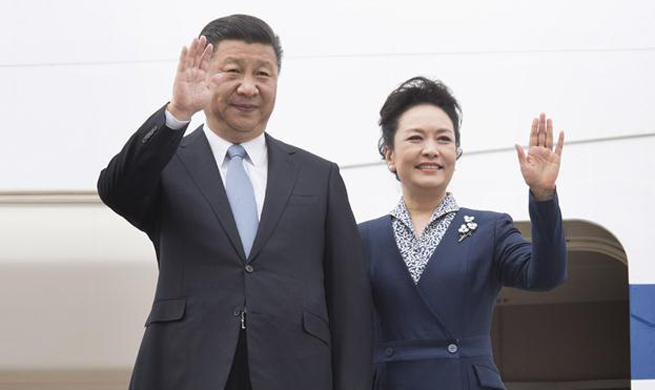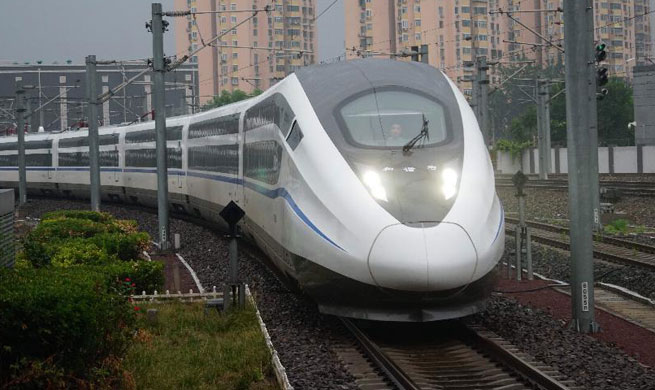by Alessandra Cardone
ROME, July 4 (Xinhua) -- As a portion of Italian companies increased their turnover in 2016, micro firms performed less well, and would remain a weak point of the country's productive system due to their less-competitive size, according to an expert.
A national survey published by Italy's Central Bank on Monday showed sales volume of firms with at least 20 employees grew last year, although at a lower rate compared to 2015. More specifically, the turnover increase was 0.3 percent in 2016 and 3.7 percent in 2015, respectively.
Although moderate, the growth particularly benefited the manufacturing and service sectors, while was much less pronounced in the energy, mining and quarrying industries.
It also equally involved firms oriented to the domestic market and exporting firms, according to the central bank.
"The research unveiled an improving picture of the Italian economy overall," Matteo Caroli, professor of Economics and International Business Management with LUISS University in Rome, told Xinhua in an interview.
However, the expert noted that the research did not involve companies with 0-19 employees, which "have weakened further, and remain the fragile part of our productive system."
"The survey's results confirmed once again that Italy's key challenge is the growth in size of many of its companies," Caroli stressed.
Indeed, micro enterprises (0-10 employees), and small enterprises (10 to 49 employees) have always constituted the backbone of the eurozone's third largest economy.
Micro firms would represent 95.3 percent of all Italian enterprises, employing 47.4 percent of the national workforce (or some 4.2 million people), according to data released by the National Institute of Statistics (ISTAT) in 2015.
Not even the crisis that hit the country since 2008 -- from which Italy is still struggling to recover fully -- modified "the structural features of the production system," ISTAT noted at the time.
The divide between micro firms and the rest of the system would find a confirmation in the central bank's data on performance of the various sectors last year.
The production increase registered in 2016 boosted the total number of annual working hours, which "grew further in manufacturing and, at a pace similar to 2015, among private service companies," the central bank's survey reported.
"The good performance of manufacturing is proof that Italian companies are increasing their competitiveness," Caroli noted.
"Yet, once again, this would concern mostly medium-size and large-size companies, which have registered good results in terms of internationalization as well," he explained.
The survey also showed the firms' investment spending kept growing last year, but less intensely compared to 2015 (by 3.9 percent and 6.7 percent, respectively).
Furthermore -- despite the moderate upward trend in sales volume and prices -- the portion of firms claiming to have achieved profits rose to 73 percent, which the central bank considered a "historically high figure."
While such data confirmed the Italian economy keeps improving, however, a major variable would still weigh on the chances of full recovery, warned the LUISS economist.
"In terms of perspectives -- and especially concerning future investments -- we would need a more substantial growth of the domestic demand," Caroli said.
Final consumption expenditure grew by 1.2 percent in 2016, and household final consumption by 1.3 percent, both sustaining a moderate 0.9 percent growth of gross domestic product (GDP), according to ISTAT.
Yet, the resumption of the domestic demand would remain limited until "taxation is decreased", according to the economist.
"Italian cabinets in latest years have taken important steps in this direction, but more has to be done, and with renewed energies," Caroli said. "We need policies to benefit households -- and especially the low/medium income ones, whose spending might grow -- and to alleviate the burden on companies, at least in terms of less fiscal bureaucracy."

















